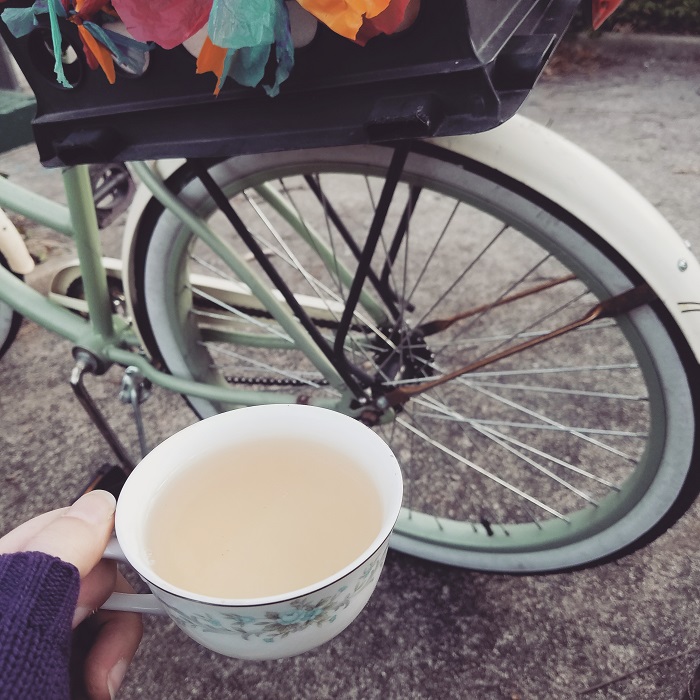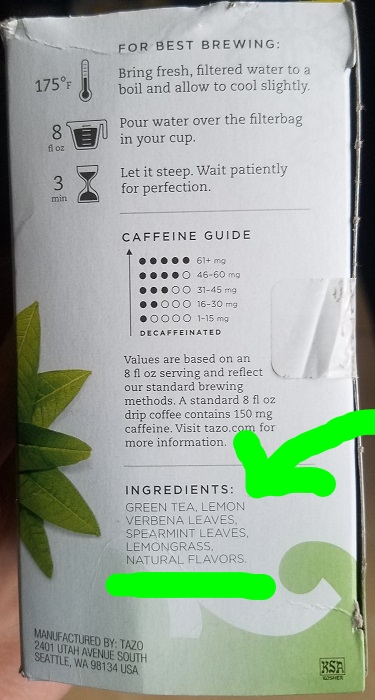Making Tea & Making Change
This post is part 2 of a series on teabags & sustainability. Part one Tailor Made Tea Bags talked about why we use teabags and how they impact our health and environment. This post will focus more on what we, as avid tea drinkers and thoughtful consumers, can do to impact change in the tea industry - encouraging sustainable practices from earth to cup. Consuming thoughtfully means changing the way we think about tea. Instead of asking: What does this tea taste like? or Am I getting a good deal? we want to set a standard that puts health and environment first: Where did this tea come from? How was it produced? What's in it? and Where will it end up when I'm done?
It's officially spring, the season of new beginnings, and the perfect time to rethink your tea habits. My spring cleaning involves clearing out the pantry- out with the old, in with the new! Spring is an important time for tea drinkers like myself. In early April exciting new teas from last years harvest become available in the USA. If you were thinking of purchasing loose leaf, now is the time! As I mentioned before, loose leaf is the most sustainable way to drink tea. Not only do you skip the extra packaging, you can get much better quality leaf, and much more leaf for your buck. The only trouble is, where to go? Here in the city, I have local tea shops I trust - the owners are available and knowledgeable. It took me some time to find them, try their products, and develop a relationship. Here are a few of the places I go to get tea in Baltimore: Juniper, Wight Tea Co, and OK Natural . I keep a running list of local tea spots here as well.
If you don't live near a city, getting good tea can be tricky. Buying online is an option, but it can be a little like buying shoes, you won't know if they fit till you try them on. Most local grocery stores only carry the bagged variety, and then, only a few brands: Bigelow, Celestial Seasonings, Lipton. Choosing a brand can be tricky, it's hard to tell what you're getting from labeling alone. I suggest doing some research on the brand you use - browse their website, email and ask them questions, get a feel for their mission before you hit the store. If you find yourself in the isle overwhelmed by choices, here are a few tips for buying better tea.
Read the mission. In this example, Tazo's mission doesn't focus on where the tea comes from or how it's produced, or much about the company at all- just the experience of drinking their tea. Choice on the other hand, tells you a lot- how long they've been in business, their core values, and their certifications are very clear. If you follow the links to their websites, you'll find Choice is an environmentally friendly leader in the industry.
Check the Ingredients. Make sure that the flavors mentioned on the front of the box are actually on the ingredient list. Beware of "Natural Flavors" and other additives. Ingredients should be easy to find on the outside of the packaging. They should also be straight forward. Don't buy tea from companies that hide their ingredient list, or refer you to their website for more information on certain ingredients. If you're not sure what something is, don't drink it. Do take the time to write the company if you're confused about their ingredient list. Something like, "what do you mean by natural flavors and why do you use them?" - another good question, where do they source their tea? and what kind of relationship do they have with their growers?
Know your labels. Tea packaging is littered with vague information advertising how fresh! authentic! organic! natural! and healthy! their product is. Don't judge a tea by it's cover. If it's in a bag, it's not likely premium tea at all, but tea dust. You won't know what the leaf is like until you buy it and see the bags (are there still whole leaves inside, or little chipped up bits & powders?). What you can see on the box are standard labels. check to see if the packaging is recyclable, look for the fair trade label and know the difference between "Fair Trade" and "Ethical Trade" so you can make informed decisions about the companies you're supporting with your money.
My teabag go-to's are Choice, and Rishi. Both companies have been working toward sustainable tea, are clear about their mission and process, and quick to respond to questions. They're also available in local grocery stores & cafes. If you can't find a brand you trust near you, consider asking your local grocery store or coffee shop to keep it in stock. Or find it online. Some other tea companies I trust (for buying online) are eco-cha tea - because they're very focused on one tea producing area, Taiwan. And Tealet because they're transparent wholesalers, and only one step away from the growers they work with.
Once you've developed a relationship with your tea connect (whether that's a company, retailer, wholesaler, or grower), you can feel confident that your money is going toward improving the industry, your health, and the environment. Drinking responsibly also means being thoughtful about your personal impact or "footprint". Some things you can do to help here:
- Invest in a tea infuser - cut back on the amount of teabags you throw away, there are tons of options for brewing tea without all the strings attached :P (I'll go into them in part three).
- Drink your tea - don't make tea and forget about it. We've all done this. That's just a waste of water and good tea. Enjoy your tea, be mindful making it, and don't make more than you need - as tea is best enjoyed fresh, becoming more bitter as it sits.
- Reuse Teabags- remember one tea bag goes a long way. You can use the same teabag up to four times before you need a new one. You can also reuse them at home for all sorts of things.
- Dispose Responsibly- Know where your trash ends up, and what you can do to avoid the landfill. Recycle boxes, compost your teabags. If you don't have recycling or compost in your neighborhood, start petitioning for it, let your representatives know about your interest and get the ball rolling.
- Ditch the K-Cups - Besides plastic and heat not being a great combo, this is just not a good way to drink tea. You can't get multiple steeps, and many of the cups can't even be recycled. If you do use them, make sure you take the time to separate the cups and recycle what you can.
- B-Y-O-C - bring your own container to the cafe and avoid buying carryout cups. Most Cafe's are flexible here, check with your barista to see what their BYOC policy is. Most places are happy to save a cup. You can get travel mugs that are standard carryout cup size. Or you can get creative...I've been using this super classy teacup holster. Most places will also give you free refills on water, if you're reusing your teabag, just make sure to leave a nice tip, and keep a good thing going.
Tea is a ritual, and there are many ways to enjoy it. As tea lovers, and thoughtful consumers, it's important to reflect on our buying and drinking habits, and to try to make informed choices about what we put in our bodies and the world. I don't expect these changes to be big, but I hope this post has given you some ideas. Be aware of your impact, and please, drink responsibly (and hopefully look stylish doing it)
This is part two of a series on sustainability & teabags. You can find part one in the Blog archive under "Tailor Made Tea Bags"









